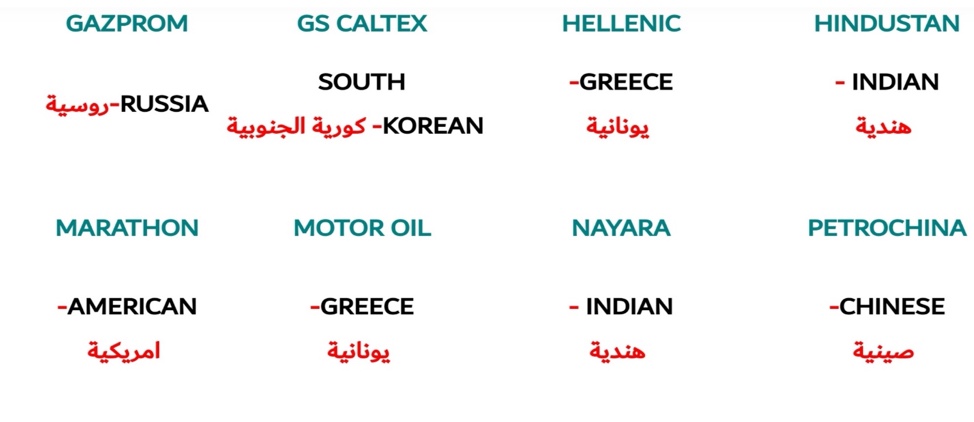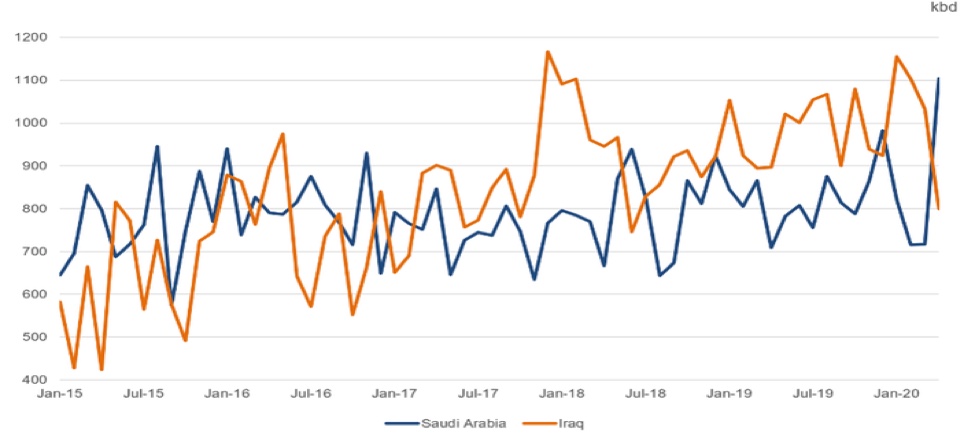According to the latest official statistics by the United Nations, India’s population is around 1.39 billion, and by 2027 India is expected to overtake China to become the country with the largest population in the world. The working and middle classes will increase the growing demand for India’s energy and transportation sector. Over several years, Iran remained the leading oil supplier to India. Still, after Trump was elected as the president of the United States, he has adopted the policy of maximum pressure on Tehran, which was initially announced by Washington’s withdrawal from the nuclear agreement signed with his predecessor Obama. Then he has started to impose an extensive series of sanctions on Iran. The most important of these is to prevent investment in the Iranian oil sector and to punish all companies having contracts with the Iranians. All these developments have pushed India to reduce the quantities received from Iran, as the President of Hindustan. Pet. Group Mukesh Kumar Surana said, “We have reduced the incoming shipments to us from Tehran to six million tons in 2019-2020 compared to nine million tons in 2018 in response to international sanctions.”
India is Looking for Alternatives
India consumes more than 5 million barrels per day, the third in the world at the rate of consumption after the United States and China. All of these things prompted India to search for stable and relatively secure energy supplies. Iraq has been one of these markets that India has resorted to alongside Saudi Arabia and Mexico to compensate for Iranian oil. In 2017, Iraq managed to extract the “lion’s share” in oil exports to India from Saudi Arabia. According to Reuters, Iraq exported 1 million barrels per day in 2017, compared to 750,000 barrels per day by Saudi Arabia. Baharat Gate signed a contract to purchase five million tons of Iraqi crude oil in 2019. All these deals were done through the Iraqi oil marketing company SOMO, which is responsible for selling Iraqi oil to international parties. SOMO uses three strategies in marketing Iraqi oil (according to the company’s website): The first strategy is general (It includes expansion in all global energy markets). The second is a unique strategy (represented in targeting the best-priced markets for Iraqi oil). The third is a subsidiary strategy (which includes targeting countries and companies with more demand). Last April, SOMO announced the sale of crude oil to 38 international entities. The share of Indian companies was 8, representing 22% of the buyers, followed by China with seven companies, then the American and South Korean companies.

Corona Crisis Hits the Indian Economy
The Indian prime minister, Narendra Modi, decided to reopen the Indian economy partially after several weeks of total closure. India has recorded nearly 74,000 cases of Coronavirus at the time of writing this report, a Baharat. Gate company official told Bloomberg, “We are having trouble persuading workers to return to their jobs since millions have fled to their villages. Most sales orders have stopped, and many factories operate with 30% of their workforce, and we do not know what will happen”. With the state easing restrictions on the economy, companies are required to shut down for 28 days if one of their workers got infected. “Even if I start operating the factory now, I will not get the raw materials. Even if I get it, I lack workers. The supply chain has completely collapsed, and small and midsize companies employ approximately 110 million workers there,” says the president of Chamber of Indian Micro Small & Medium Enterprises.
Saudi Arabia Takes Over Iraq’s Shares
Last April, the former Iraqi Oil Minister told the government newspaper, Al Sabah, “we are facing a difficult situation in marketing crude oil”. Hindustan.Pet. Group issued a strong notice in the same month under the name “force majeure” to SOMO, informing the latter about the cancellation of two shipments of oil (million barrels per shipment) because of the demand for fuel decreased by India due to the Coronavirus on the Indian economy. Homayoun Falakshahi, a chief analyst at the data company Kpler, told Reuters that Iraq’s exports to India went through the most significant decline on a monthly basis in years, as it decreased by 230 thousand barrels per day, while Saudi Arabia recorded an increase of 400 thousand barrels per day.

The chart above shows the fluctuation of the shares exported to India between Iraq and Saudi Arabia for over six years. Saudi Arabia has used investment methods inside India to guarantee its return as the largest oil supplier to India by investing in several large refineries in the country.
Note: Opinions expressed in this article are of the author and do not necessarily reflect the opinions and the view of Al-Bayan.
Sources:
- https://drive.google.com/file/d/1nlZT38x2GikZHti-DDDVXRZVrQW8jIDL/view?usp=sharing
- https://drive.google.com/file/d/1U-eCKsMaZ5BOyfmE1JmZzftoF4zxgADo/view?usp=sharing
- https://drive.google.com/file/d/1Tz5CorDlG3QozB4G2uDbltTKaiWYd1Ah/view?usp=sharing
- https://drive.google.com/file/d/1Ty2XvYJ0oNJufAB7mBc-r_tJE5rF2HSx/view?usp=sharing
- https://drive.google.com/file/d/1Tkez0rWE9rG5wzbgd4P_QlYUziwxKJgX/view?usp=sharing
- https://drive.google.com/file/d/1TbqWytvPY3TKwc7VorxXJ8xZT8PSxw15/view?usp=sharing
- https://drive.google.com/file/d/1TbXNxoT80u7oXslBFG2N1cH2SNgGD1Zh/view?usp=sharing .




